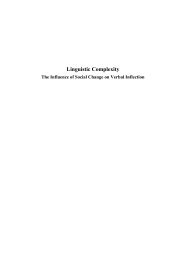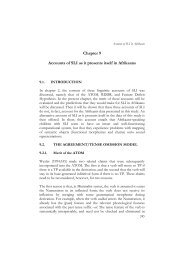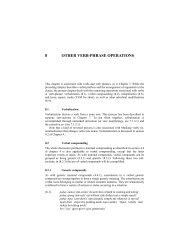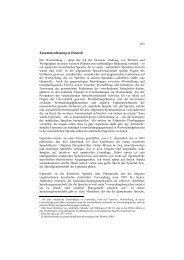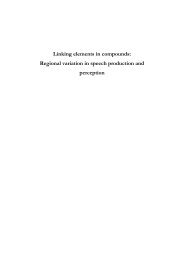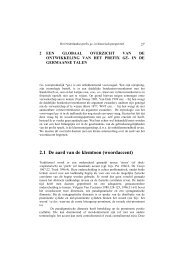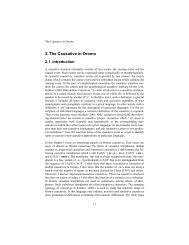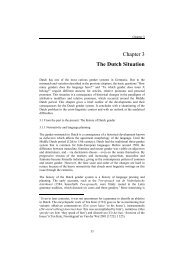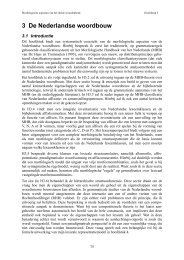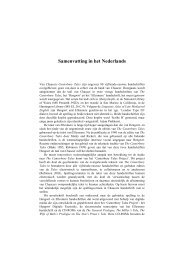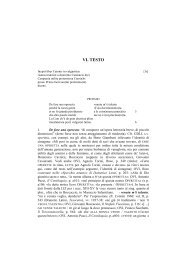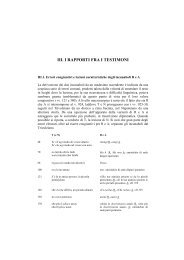chapter 2 stance adverbs qualifying a standpoint - LOT publications
chapter 2 stance adverbs qualifying a standpoint - LOT publications
chapter 2 stance adverbs qualifying a standpoint - LOT publications
Create successful ePaper yourself
Turn your PDF publications into a flip-book with our unique Google optimized e-Paper software.
58<br />
CHAPTER 2<br />
A: Clearly, Paul lost the election.<br />
B: ?You are not right / That is not true, I think this is not so clear.<br />
A: Perhaps, Paul lost the election.<br />
B: ?You are not right / That is not true, I think this is not so<br />
probable.<br />
In the above constructed dialogues, B‟s expression of disagreement cannot be<br />
taken to concern the epistemic adverb alone. In the case of clearly, B‟s reaction<br />
is understood as concerning the proposition „John lost the election‟. It could<br />
stand as a reaction expressing disagreement even if clearly were missing from A‟s<br />
utterance. The same observations apply in the case of perhaps. Furthermore, in<br />
utterances with an epistemic/modal adverb the hearer cannot concede to the<br />
truth of the embedded proposition and at the same time disagree with the<br />
choice of the adverb, as the following examples show:<br />
A: Clearly, John lost the elections.<br />
B: *That is true [= that John lost the elections] but it is not clear.<br />
A: Probably, John lost the elections.<br />
B: *That is true [= that John lost the elections] but it is not probable.<br />
It is this latter feature that presumably makes scholars like Jayez and Rossari<br />
(2004) argue that the hearer‟s assenting or dissenting reaction includes the<br />
modal adverb. But even with this interpretation, the examples above would still<br />
be unacceptable since language user B would appear contradicting himself as<br />
the following examples illustrate:<br />
A: Clearly, John lost the elections.<br />
B: *That is true [= that it is clear that John lost the elections] but it is<br />
not clear.<br />
A: Probably, John lost the elections.<br />
B: *That is true [= that is it probable that John lost the elections] but<br />
it is not probable.<br />
The above utterances may be used, as Jayez and Rossari make use of them, in<br />
order to illustrate in semantic terms that modal <strong>adverbs</strong> are part of the truthevaluable<br />
propositional content of the utterance and to contrast them to<br />
evaluative <strong>adverbs</strong>. 40 However, in pragmatic terms the implications of the<br />
assent or dissent of the hearer cannot be interpreted as endorsing /challenging the modal,<br />
contrary to Jayez and Rossari‟s interpretation.<br />
40 Contrary to Jayez and Rossari (2004), Papafragou (2006, p. 1697) concludes that the<br />
assent/dissent test “does not constitute evidence for the truth-conditional nature of (subjective)<br />
epistemic modality”. A similar observation is made by Nuyts (1993). Interestingly, Papafragou,



